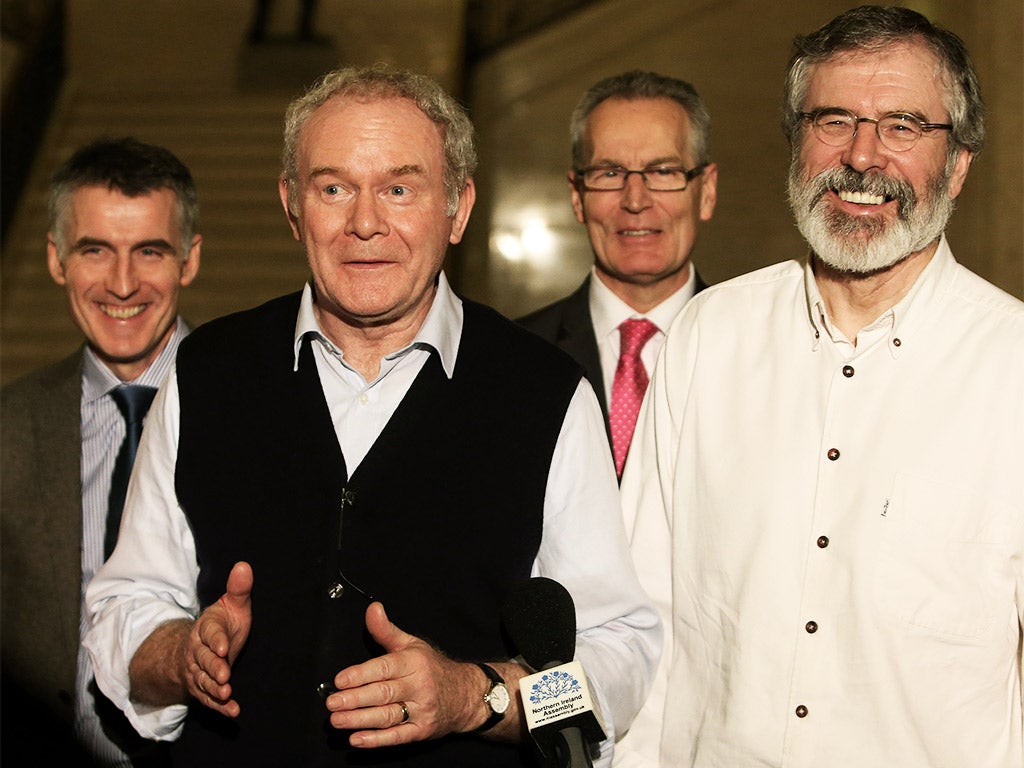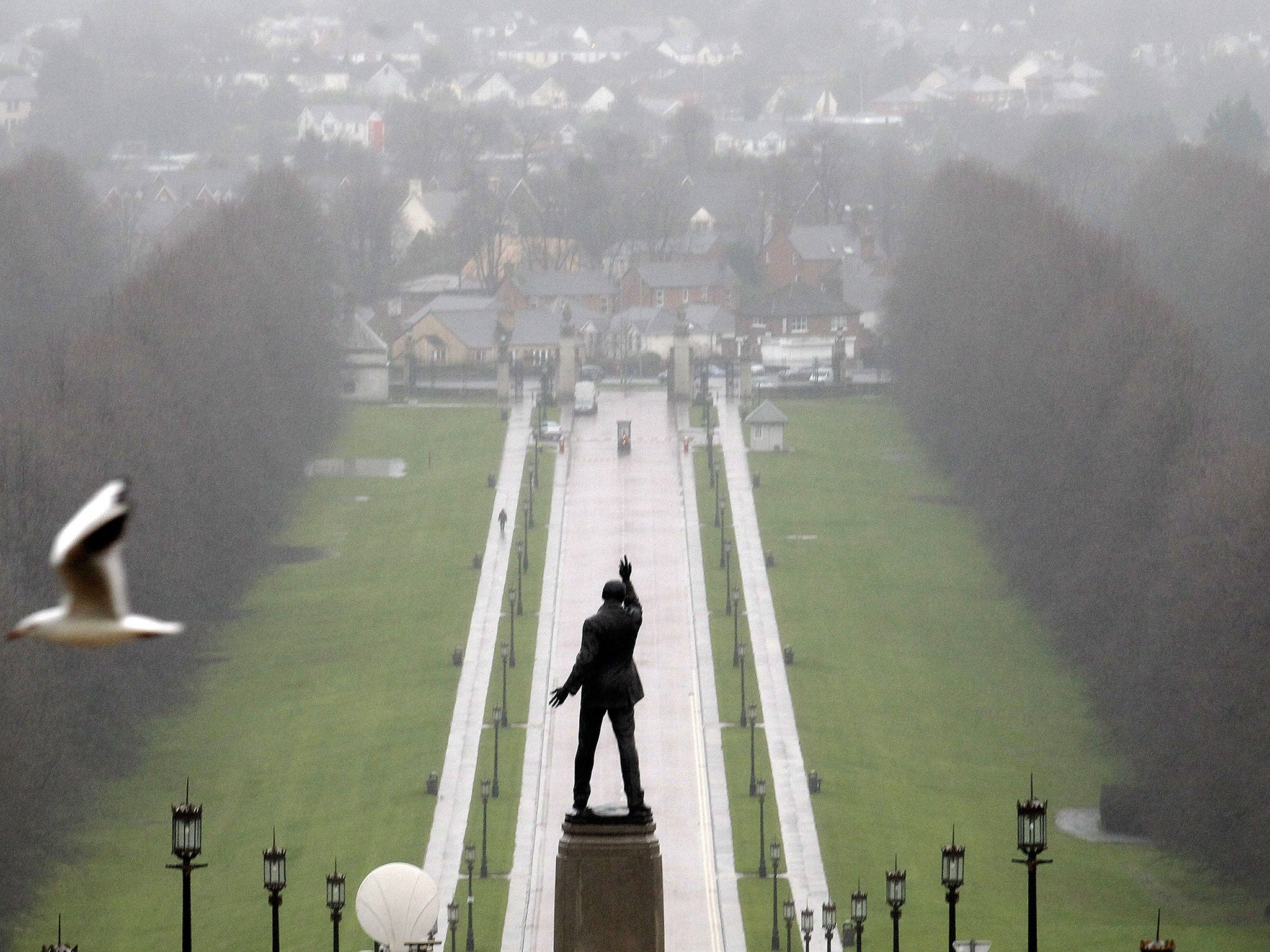Stormont leaders agree on bailout, but not on flags or marches
David Cameron: "The financial package opens the way for economic security"

Your support helps us to tell the story
From reproductive rights to climate change to Big Tech, The Independent is on the ground when the story is developing. Whether it's investigating the financials of Elon Musk's pro-Trump PAC or producing our latest documentary, 'The A Word', which shines a light on the American women fighting for reproductive rights, we know how important it is to parse out the facts from the messaging.
At such a critical moment in US history, we need reporters on the ground. Your donation allows us to keep sending journalists to speak to both sides of the story.
The Independent is trusted by Americans across the entire political spectrum. And unlike many other quality news outlets, we choose not to lock Americans out of our reporting and analysis with paywalls. We believe quality journalism should be available to everyone, paid for by those who can afford it.
Your support makes all the difference.Politicians in Northern Ireland on Tuesday hailed a small but significant breakthrough following 11 weeks of talks and more than a year of bad-tempered impasse.
While a number of thorny issues remain unresolved, the talks at Stormont led by the London and Dublin governments found agreement on financial matters and other issues which have produced deep and often bitter divisions among political parties.
The hope is this will provide stability to a political system which has been steadily losing public credibility.
Local parties had sought more money from London, with Sinn Fein emphasising it that it would not enact “Tory cuts.” But a new proposal from David Cameron, offering Belfast a reported £1.5bn, found favour.
The Prime Minister said he was delighted a workable agreement had been reached, while Irish PM Enda Kenny declared he was very pleased with the outcome.
The deal was also welcomed by the Democratic Unionists (DUP) and Sinn Fein, the two parties who dominate the Belfast Assembly. DUP First Minister Peter Robinson described it as a very significant agreement, while his Sinn Fein deputy Martin McGuinness called it a remarkable achievement.

Mr Cameron declared: “This historic agreement has been long in the making, and means the UK Government has been able to offer a significant financial package that opens the way for more prosperity, stability and economic security for Northern Ireland.”
London, Dublin and the local parties also made progress on the vexed issue of how to deal with the past and investigate killings by both the IRA and loyalist groups, as well as a number by the Army during the troubles. London has offered to make money available for such inquiries.
But particularly touchy issues such as the right of loyalists to march near disputed areas, and their right to fly flags, appear not have been advanced in the talks, which culminated in a 30-hour session.
The Northern Ireland Secretary Theresa Villiers said that there would be “many days of hard work ahead.” Next year’s marching season will provide a test of any new arrangements that can be put in place.